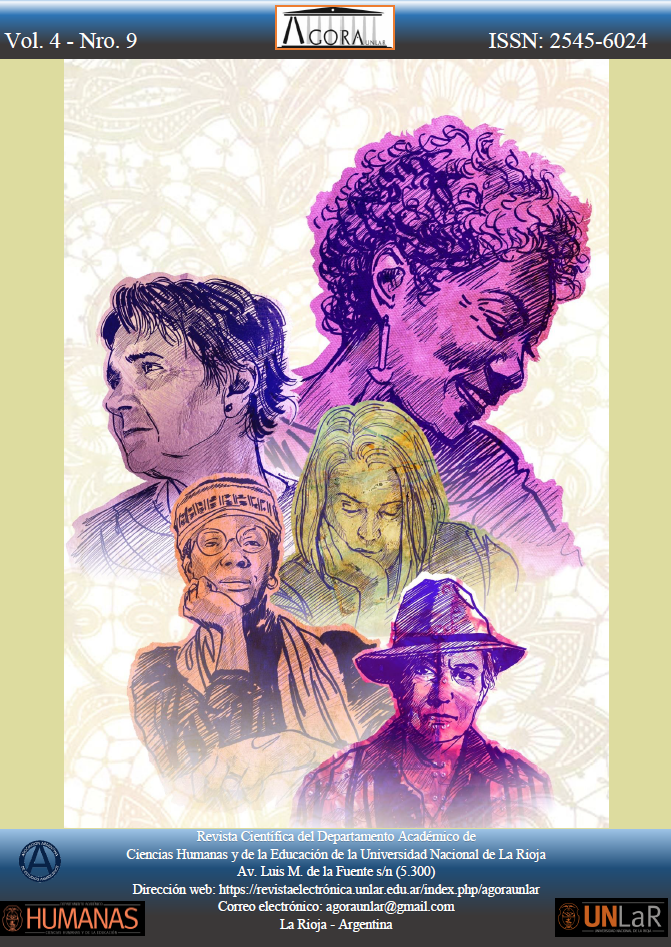LA LENGUA: TOPOS DE IDENTIDAD Y DIFERENCIA
Keywords:
lengua, migración, identidad lingüística, toposAbstract
La cuestión migratoria, produce un fenómeno que se llama mestizaje, marcado por continuos intercambios,conscientes o no, de cuestiones culturales. Uno de sus puntos clave de este fenómeno es la modificación dela lengua. Se migra de un lugar, de un topos particulares, con una lengua madre que cobija, a otro lugar para,al decir de Anzaldúa, “formar un tercer país, una cultura de frontera” (Anzaldúa, 2016, p. 42). Es aquí dondese va produciendo este cambio, la modificación y la resignificación de la cultura que se trae y la cultura quese recibe, este proceso se da en lo social, y necesariamente “abarca el proceso de producción, circulación yconsumo de significaciones en la vida social.” (Canclini, 2004, p. 35). ¿Cómo se manifiesta esto en un contextorural? ¿Qué sucede con el trabajador golondrina? Nuestra hipótesis es que la familia de trabajadoresgolondrina de la novela Under the Feet of Jesus (1996) de Helena María Viramontes vive en una fronterageográfica y metafórica que lejos de permitirles formar parte de un tercer país, descripto por Anzaldúa, losexcluye y los margina por su condición de campesinos.Cuando nos comunicamos la lengua va conformando el topos en donde nos situamos. En este texto literariola palabra es algo que los protagonistas no pueden articular, su incapacidad para comunicarse en la lenguaextranjera los margina y los excluye. Sus escasas palabras y significativos silencios los separan de un mundoen dónde no pueden insertarse. LANGUAGE: TOPOS OF IDENTITY AND DIFFERENCEAbstractMigration is a phenomenon that brings about hibridity. The continuous cultural exchange, of which we may ormay not be aware, particularly impacts on language change. People migrate from one place to another, froma particular geography with a particular mother tongue to another place where, as Anzaldúa puts it, people“can inhabit a third country, a culture of borders” (Anzaldúa, 2016, p. 42). It is in this borderland where changetakes place, both the migrant´s culture and the local culture are modified and resignified. This process operatesat a social level and it comprises “processes of production, circulation and consumption of meaning in sociallife” (Canclini, 2004, p. 35). How does this operate in a rural context? What happens to the migrant worker?We hold that the family of migrant workers, characters of the novel Under the Feet of Jesus (1996) by HelenaMaría Viramontes, live in a geographical and metaphorical border which excludes and discriminates them fortheir condition of peasants and does not allow them to be part of the third space which Anzaldúa describes.When we communicate language constitutes the topos which we inhabit. Words in the literary text under studyare hard to articulate, the lack of command of the foreign language excludes and marginalizes the characters.The meaningful silences and the few words they do articulate detach them from a world of whichthey cannot be part.Key words: language; migration;linguistic identity; toposDownloads
Published
2019-08-31
Issue
Section
ARTÍCULOS DE INVESTIGACIÓN O REVISIÓN TEÓRICA





